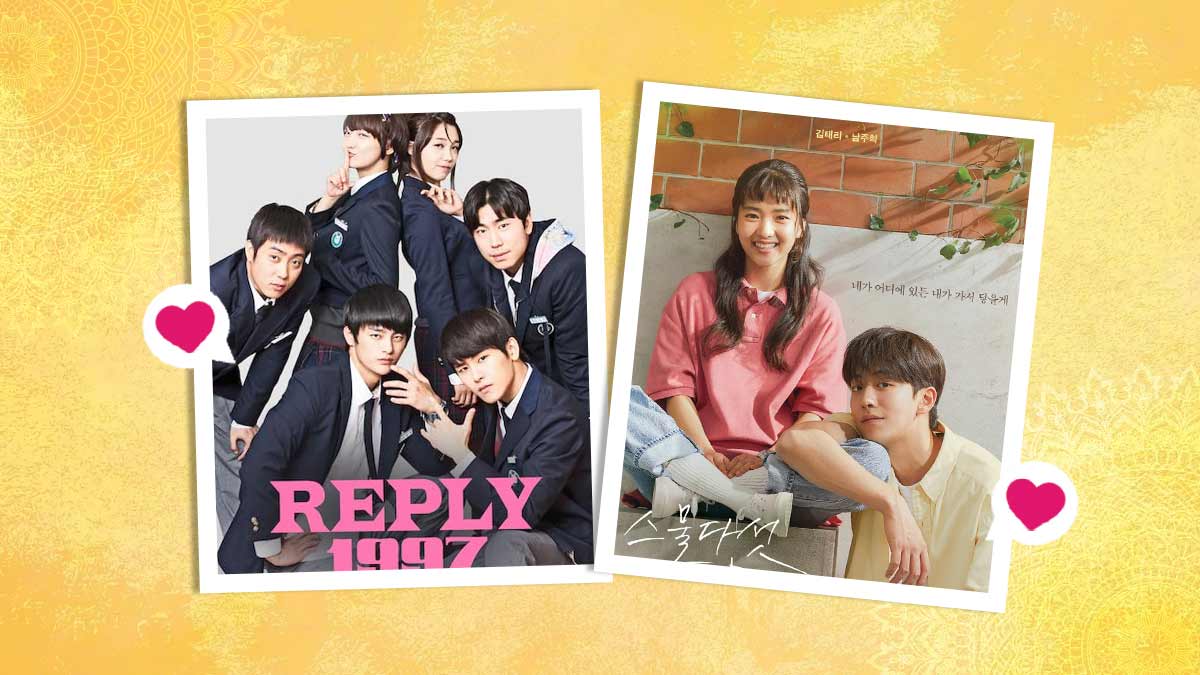Korean dramas and movies have emerged as a cultural phenomenon in the dynamic global entertainment landscape, captivating audiences worldwide with their unique narratives and lovable characters. The popularity of many Korean dramas is attributed to their representation of fashion, style, and culture. By combining emotional allure, romantic charm, and familial commitment, these K-dramas have garnered immense affection from a global audience. Notably, certain K-dramas set in the 90s have particularly resonated with people across the world. In the following, we disclose some of these noteworthy K-dramas.
‘Twinkling Watermelon’
Featuring Ryeoun, Choi Hyun-wook, Seol In-ah, and Shin Eun-soo in prominent roles, the series explores various genres including coming-of-age, fantasy, romance, family, friendship, and comedy. It has garnered a substantial fanbase within the Korean drama community due to its relatable and heartwarming storyline that resonates with viewers. The show also evokes nostalgia through its inclusion of iconic elements from the 1990s, such as K-pop songs, beepers, Y2k fashion, walkmans, cassettes, and more, creating a sentimental connection with the audience.
‘Twenty-Five Twenty-One
‘Twenty-Five Twenty-One’ follows the life of Na Hee-do, depicting her transition from a school-going kid to an adult. Set in the 1998 era, she is portrayed as a high school girl with a strong ambition to become a nationally recognised fencer. Despite her determined nature, she also exhibits typical teenage behaviour, throwing tantrums and feeling embarrassed about trivial matters rather than expressing her emotions openly. Na Hee-do is shown to have interests like reading Full House comics, participating in online forums, and more. The drama also features Kim Ji-yeon (Bona), Choi Hyun-wook, and Lee Joo-myung in significant roles.
Don't Miss: Animes Releasing In 2024: Your Guide To The Most Anticipated Series Of The Year
‘Reply 1997’
Taking place during a period of significant societal changes and the pop culture explosion of the 90s, the narrative of the story revolves around a group of friends navigating the challenges of adolescence. The drama skillfully integrates references to popular songs, fashion trends, and societal norms, immersing viewers in an era characterised by mixtapes and flip phones.
‘Hotel’
The 1995 film ‘Hotel,’ directed by Kim Ki-ho and Lee Jin-suk, follows a classic K-drama (time travel kdramas) storyline. Im Hyung-bin (Han Seok-kyu) reluctantly assumes control of his family's hotel, despite having no interest in managing it. Teaming up with his recently returned half-brother Im Kyung-bin (Lee Jin-woo), who holds a Hotel Management degree from the U.S., Im Hyung-bin must prevent the hotel from facing ruin as their decisions leave a lasting impact. The hotel's public relations specialist, Han Su-min (Lee Seung-yeon), finds herself caught in the middle of the brothers, forming the quintessential cliché: a love triangle narrative.
Don't Miss: Kill This Love To Super Shy: Check Out These Must-Listen Songs By Top Korean Female Artists
‘Reply 1994’
Building on the success of ‘Reply 1997,’ ‘Reply 1994’ maintains the successful formula of combining nostalgia with captivating storytelling. Taking place in the mid-90s, the drama's narrative unfolds within the confines of the Ssangmundong boarding house in Seoul, serving as a microcosm of varied personalities and aspirations. The central theme of the series revolves around the enduring value of friendship. Viewers witness the ebbs and flows of friendships forged among a diverse group of friends hailing from various regions of South Korea, as they navigate academic challenges, cultural disparities, and personal growth.
Credits: Youtube
